
What an excellent photograph! We agree with our reader, he is dealing with hammerhead worms! Hammerhead worms are predatory terrestrial flatworms that are nicknamed for the distinctive shape of their head region. Since there are numerous species of hammerhead worms, the name is used to describe a number of similar worms that belong to the Bipalium genus.
As we mentioned, these worms are predatory, but they aren’t as dangerous as they sound. They aren’t harmful to humans, dogs, cats, or other pets. The only creatures that suffer directly because of hammerhead worms are earthworms, which are the primary food source of these flatworms. Hammerhead worms have an extremely gruesome way of eating their prey. First, a hammerhead worm will follow the trail that an earthworm leaves behind to locate it. Once it finds the unlucky earthworm, it holds its victim in place with its muscles and a sticky secretion. The hammerhead worm then secretes enzymes on the earthworm that dissolve its body. Finally, the hammerhead worm sucks this liquified feast up! Yuck!
Although hammerhead worms aren’t generally considered to be pests, some people do see them in that light. They feed on earthworms, which are extremely beneficial to the environment. Earthworms help control pest populations, like termites and grubs, and they help keep the soil nutrient-rich. So, by killing earthworms, hammerhead worms might cause your garden or yard to suffer slightly. We don’t think our reader needs to go out of his way to rid his yard of hammerhead worms, but if he is determined to eliminate them, we will offer a few tips. First, hammerhead worms will regenerate if cut up. So our reader should not attempt to slice these worms into pieces because the pieces will just become additional hammerhead worms! Effective treatment options include using salt, vinegar, or citrus oil to dissolve the worms. Our reader can use a spray bottle filled with either vinegar or citrus oil to directly spray the worms, or pour salt directly on them. Just spraying the soil or spreading salt on it will not do the trick.
All About Worms is always free, always reader-supported. Your tips via CashApp, Venmo, or Paypal are appreciated! Receipts will come from ISIPP Publishing.
You might also find these guys interesting!





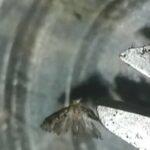
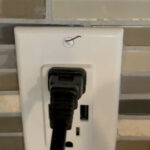
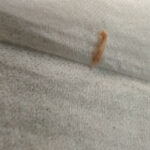
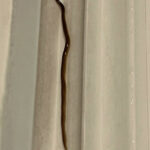
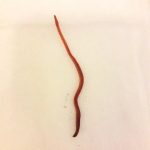
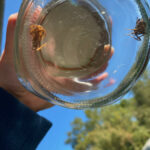
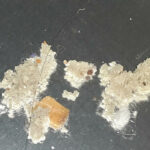







This could be a very dangerous worm. If it can dissolve ew tissue what is to keep it from dissolving tissue in a cats nose, stomach or intestines?i. It’s mouth is constantly moving as it passes over everything. Help!!! Please advise!!!
I have lived in the same house for 50 years and have never seen a hammerhead worm until last year. What brought it to my attention was the slimy spit looking mucus under my outside cats water bowls. I sprayed them with the Lysol in the blue and white pump spray bottle in the citrus
scent and it did kill them. The longest I saw was about a foot and a half long. It started to crawl away and I thought it would never get uncoiled. I ran in the house to get something to try to kill it and it was gone by the time I could get back out there. This could be a very dangerous worm. If it can dissolve ew tissue what is to keep it from dissolving tissue in a cat’s nose, stomach or intestines? It’s mouth is constantly working and moving over whatever. I hope you get this entire message! Help!!! Please advise!!!